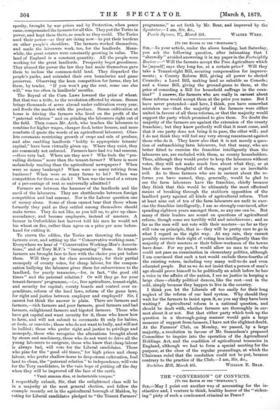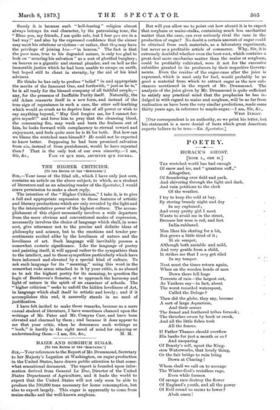THE " CONVERSION " OF CONVICTS.
[TO THE EDITOR OF THE "SPECTATOR."] Sr-a,—May I point out another way of accounting for the in- stinctive and, I venture to think, healthy horror of the " sicken- ing " piety of such a condemned criminal as Peace? Surely it is because such " hell-fearing " religion almost always betrays its real character, by the patronising tone, the "Bless you, my friends, I am quite safe, but I fear you are in a bad way !" and also by the expressed confidence that the sinner may meet his relations or victims—or rather, that they may have the privilege of joining hint—"in heaven." The fact is that the poor man, true to his degraded nature, is only too glad to look on "securing his salvation" as a sort of glorified burglary; on heaven as a gigantic and eternal plunder, and on hell as the inexorable justice which he had been unable to escape on earth, but hoped still to cheat in eternity, by the aid of his kind advisers.
He thinks he has only to profess " belief " in and appropriate the merits of the Innocent One, and forthwith, "just as he is," he is all ready for the blessed company of all faithful people,— nay , for the presence of Ineffable Purity itself. Naturally, the old Adam reasserts itself in a new form, and instead of the true sign of repentance in such a case, the utter- self-loathing which would so crush as to deprive him of all power or wish to say anything beyond, "May God forgive me, for I cannot for- give myself!" and force him to pray that the cleansing blood, the consuming fire, may wash and burn the foulness out of him, he looks forward with complacency to eternal reward and enjoyment, and feels quite sure he is fit for both. But how can we blame the wretched man himself ? He could not be expected to know better. Supposing he had been promised salvation from sin, instead of from punishment, would he have repented then ? That is the only test of our own sincerity.—I am,
Sir, &c., FAIS CE QUE DOIS, ADYIENNE QUE POUERA.



































 Previous page
Previous page